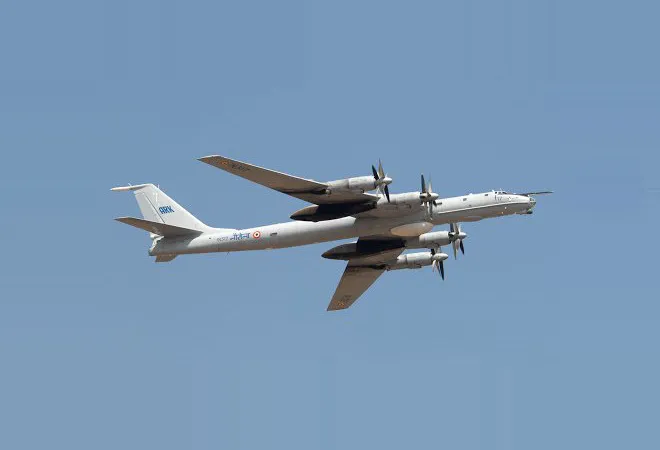
A subregional approach to building security cooperation has been gaining salience in India’s neighbourhood policy in recent years. The revival of the National Security Advisor (NSA)-level trilateral India-Sri Lanka-Maldives dialogue on maritime security cooperation that was held last week in Colombo underscores this policy approach. Sri Lanka and the Maldives are India’s immediate maritime neighbours with interconnected security dynamics and the trilateral dialogue mechanism is a subregional project for “mutual cooperation” in the shared maritime space.
The joint press statement issued after the meeting noted that the three countries agreed to “broad base” their cooperation for “common benefit” and to deal with “common security threats” such as terrorism, extremism, drugs, arms and human trafficking, amongst others. The statement further noted that the trilateral meetings have helped the three countries to improve “close coordination” in maritime security in the region.
Sri Lanka and the Maldives are India’s immediate maritime neighbours with interconnected security dynamics and the trilateral dialogue mechanism is a subregional project for “mutual cooperation” in the shared maritime space.
The first NSA-level trilateral meeting was held in the Maldivian capital, Male in 2011. Then in 2012, the bilateral India-Maldives ‘DOSTI’ exercise was expanded to a trilateral joint coast guard exercise by adding Sri Lanka. The second NSA-level trilateral meeting held in Colombo in 2013 outlined a roadmap for cooperation in maritime security. The third NSA-level meeting held in Delhi in 2014 saw the participation of Mauritius and Seychelles as “guest countries.”
At the 4th trilateral meeting in Colombo last week, India’s National Security Advisor Ajit Doval and the Maldivian Defence Minister Mariya Didi led the Indian and the Maldivian delegations respectively, while Sri Lankan Defence Secretary Maj. Gen. (rtd) Kamal Gunaratne led the host delegation. Senior officials from Mauritius and Seychelles participated virtually.
A geostrategic subtext driving India’s calculations is if Delhi does not play the role, it might open room for rival powers to step in its backyard.
A couple of factors seem to drive Delhi’s subregional approach to security cooperation in the neighbourhood. First, the recognition that subregional security dynamics are interconnected and there is need to view it with a holistic approach beyond bilateralism. A key objective has been to deal with the compulsions of interlinked transnational security challenges in the neighbourhood.
Second, the desire to play a leading security role in the neighbourhood. A geostrategic subtext driving India’s calculations is if Delhi does not play the role, it might open room for rival powers to step in its backyard. For the idea of subregional security cooperation to be effective, Delhi would need to consider a couple of factors.
Subregional cooperation cannot be insulated from bilateral political relations.
An issue that has and will continue to pose a challenge in forging subregional security cooperation for India relates to the foreign-policy behaviour of smaller neighbours. For instance, the progress of the NSA-level trilateral meeting was affected when Delhi’s ties with Male deteriorated under Maldivian President Abdulla Yameen.
Subregional cooperation cannot be insulated from bilateral political relations and, hence, maintaining good bilateral relations with individual countries and responding to the growing aspirations of smaller neighbours would be crucial.
Smaller neighbours seem to adopt a slightly different approach towards traditional and non-traditional security cooperation. Most of the smaller neighbours are more comfortable cooperating in non-traditional security than entering into hard military cooperation with India at the subregional level. Showing sensitivity and accommodating the smaller neighbours’ concerns would further strengthen mutual trust, an issue that is inherent in the relations between big and small neighbours.
Most of the smaller neighbours are more comfortable cooperating in non-traditional security than entering into hard military cooperation with India at the subregional level.
Delhi’s desire to include Seychelles and Mauritius in the trilateral maritime security arrangement seems to suggest a dilemma. On the one hand, there is acknowledgment that security dynamics with subregional dimensions have specific challenges, concerns and interests, while on the other hand, there is a desire to expand the boundary of security cooperation. This tension may undermine the core subregional interests that forms the basis of the trilateral cooperation.
Drawing a clear boundary of the subregion will continue to remain a challenge as cooperation will not always be driven by the proximity factor but also by the nature of the issue itself. Having said that, some clarity on the boundary issue may help in better framing the objectives of subregional security cooperation and avoid overlapping of membership or duplication of activities.
Drawing a clear boundary of the subregion will continue to remain a challenge.
Apart from other formats of security cooperation, the subregional approach strengthens security cooperation in the neighbourhood and is a useful mechanism not only in addressing a space that often does not receive the focus it deserves in its entirety but also as it complements other security cooperation efforts at the wider regional level.
The subregional approach has been providing Delhi the opportunity to experiment with new arrangements in building security cooperation with its neighbours. The recent trilateral meeting in Colombo indicates that the subregional approach is here stay and its importance likely to grow in the coming years.
The views expressed above belong to the author(s). ORF research and analyses now available on Telegram! Click here to access our curated content — blogs, longforms and interviews.




 PREV
PREV


